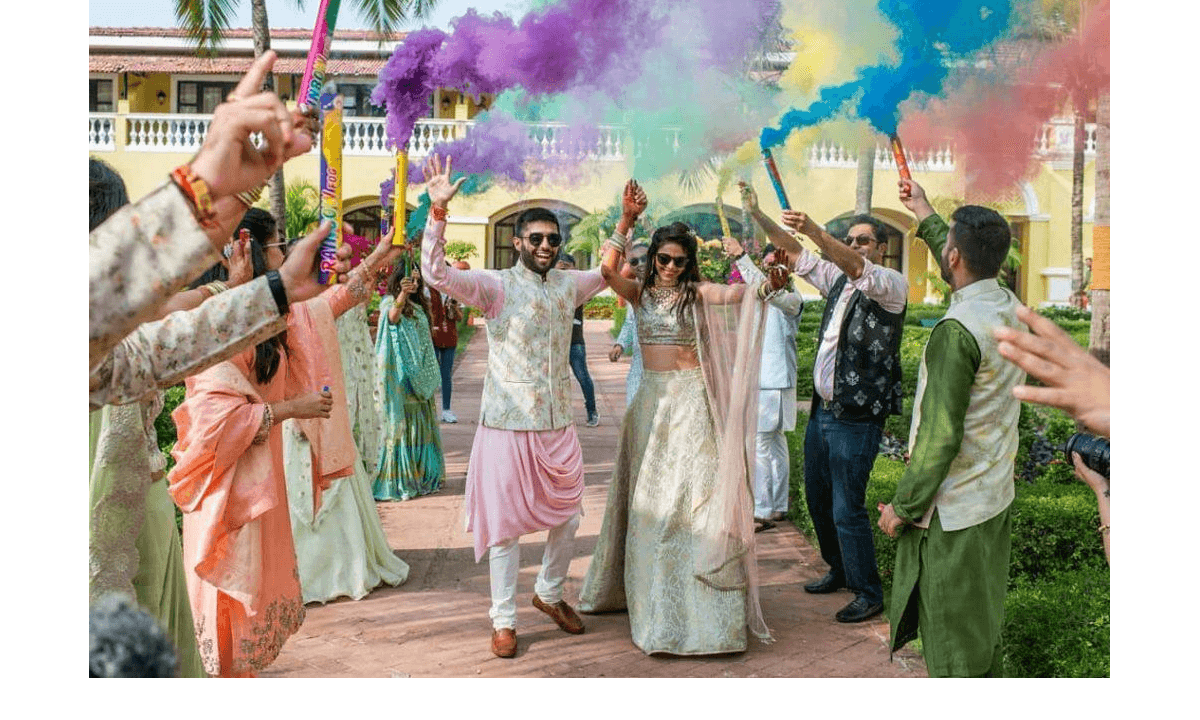Reasons: Why Newly Wedded Brides Celebrate Their First Holi After Marriage at Their Parental Home

There are several reasons why newly married women choose to celebrate their first Holi after marriage at their parental home. Firstly, this tradition symbolizes the importance of the bride’s connection to her family of origin.
However, here is a neutral and fact-based blog on the topic:
1. Holi is a popular Hindu festival that is celebrated with great enthusiasm across India. However, for a newly married woman, celebrating Holi at her husband’s house may not be the best idea. There are several reasons why this is the case.
2. First and foremost, Holi is a Hindu festival of colors, where participants throw colored powder and water on each other. This can cause skin irritation and other health issues, especially for a woman who has recently undergone the physical and emotional stress of a wedding.
3. Additionally, Holi celebrations often involve excessive drinking and partying, which can be inappropriate for a newly married woman in a traditional Indian setting. It may not be in line with the expectations of her husband’s family and could cause discomfort and misunderstandings.
4. Finally, Holi celebrations can also be very physically demanding, with participants engaging in rowdy games and activities that may not be suitable for a woman in her first year of marriage.
In Hindu culture, it is considered auspicious for a newly married woman to celebrate her first Happy Holi at her paternal home. This tradition symbolizes the woman’s roots and the importance of her connection to her family of origin. By celebrating Holi with her relatives at her paternal home, she is able to maintain her ties to her family and preserve her cultural heritage.
Additionally, celebrating the first Holi at her paternal home can also provide the bride with a sense of comfort and security, as she is surrounded by familiar faces and familiar surroundings. This can help ease the transition into married life and provide her with a support system as she starts her new life with her husband.
DON’T MISS TO READ: Best places to celebrate Holi in India 2023
while Holi is a fun and festive occasion, it may not be the best idea for a newly married woman to celebrate Holi at her husband’s house. It is important for her to prioritize her health and well-being, and to consider the cultural and social expectations of her husband’s family.
You need to be aware of this traditional belief. The idea behind celebrating the first Holi at the bride’s paternal home is to maintain and strengthen the bond between the bride and her family of origin. It is believed that by celebrating the Holi festival with her parents and relatives, the bride is able to reconnect with her roots and preserve her cultural heritage.
Additionally, there is also a superstitious belief that if a newly married woman celebrates Holi with her mother-in-law, it could bring misfortune to the family or cause tension between the bride and her mother-in-law. As a result, many Hindu families follow the tradition of the bride celebrating her first Holi at her paternal home, or “Maykaa”.
DON’T MISS TO READ: The Ultimate Guide to Holi Celebration 2023
DON’T MISS TO READ: The Story of Holika Dahan
For a newly married woman, celebrating her first Holi at her paternal home is an important tradition in Hindu culture that holds great significance. It allows her to maintain her ties to her family, preserve her cultural heritage, and provide her with comfort and support as she starts her new life.
The tradition to celebrate Holi for the bride’s paternal home is a deeply ingrained cultural belief in many Hindu families. While its roots may be based on superstition, it is still an important way for a newly married woman to reconnect with her family and preserve her cultural heritage.
Another factor for not celebrating the first Holi at the husband’s home.
A Traditional Belief to Remember: Why Newly Married Women Should Avoid the Holika Dahan Fire
“According to Hindu religious scriptures, it is believed that newly married women should not observe the fire of Holika Dahan. This fire is seen as a symbol of burning away the old self and starting anew, and it is believed that if a newly married woman witnesses this fire, it could bring misfortune to her marriage.
It is said that by avoiding the fire of Holika Dahan, the newlywed can avoid potential problems in her married life. As a result, many Hindu families follow this tradition to ensure a happy and harmonious marriage for the newlyweds. In conclusion, the avoidance of the Holika Dahan fire is an important custom in Hindu culture that is believed to bring good luck and prosperity to newly married couples.”
For newly married women, it is important to keep in mind the traditional belief that avoiding the Holika Dahan fire can bring good luck and prosperity to their marriage. While this may not be a universally followed custom, many Hindu families consider it a significant and cherished tradition that can help ensure a happy and harmonious marriage for the newlyweds. Thus, for those who adhere to this belief, avoiding the Holika Dahan fire should be kept in mind during the festival of Holi.






